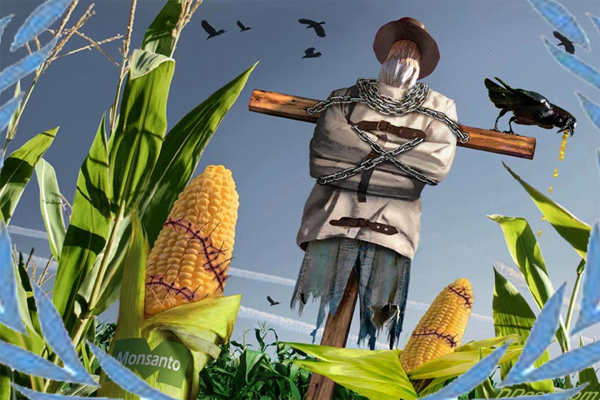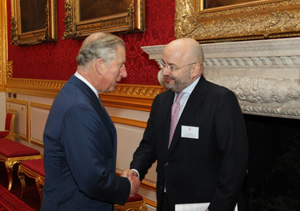Monsanto Formally Joins Global Agenda 21 Front Group
February 4, 2013 http://www.pakalertpress.com/2013/02/04/monsanto-formally-joins-global-agenda-21-front-group/
Jurriaan Maessen
The global front group of the
Agenda 21 program which was formalized during the UN’s 1992 Earth Summit
is proud to welcome Monsanto as its newest “member”, joining the likes
of such “sustainable” businesses as Coca Cola, Dutch Royal Shell and
other global leviathans.

The World Business Council for Sustainable Development (WBCSD) has put out a press release,
announcing that Monsanto has joined the effort for “global sustainable
development”. The Council consists of several global mega-corporations
such as Dutch Royal Shell and Coca Cola, to mention just a few.
The press-release notes that by joining
the Council “Monsanto is taking an important step along a continuum
towards developing a more sustainable agriculture system – one that
improves our daily lives, respects our global environment and recognizes
the importance of the world’s small-holder farmers”.
President of the WBCSD, Peter Bakker,
stated that “a future vision” is required to move “to protect soils,
enhance ecosystems and optimize land use in ways that are
environmentally sound.”
“(…) we must move towards a future vision
for agriculture where absolutes become as out of place as a
one-size-fits-all approach to farming.”
Jerry Steiner, Executive Vice President, Sustainability and Corporate Affairs at Monsanto said:
“We are excited to join the WBCSD and
connect with a global coalition of more than 200 companies that advocate
for progress on sustainable development.”
The global coalition Steiner speaks about
consists of just about all global mega-corporations. Here’s an overview
of the membership-list as posted on the WBCSD’s website:
The Council on their website admits that it strives to execute Agenda 21 as part of a “One World Vision”. Furthermore, the WBCSD describes
that it “has its roots in the proactive stance adopted by a group of
visionary business leaders during and after the Rio Summit.”
“The Rio Summit in 1992 was a defining
event for sustainable development. It added development to the
environmental agenda, produced the Rio Declaration, the Climate Change
and Biological Diversity Conventions and set in motion Agenda 21.
Importantly, it positioned business as a key actor.”
Adding global GM food producer Monsanto
to its roundtable equals victory for Agenda 21, as global food
production is a prime concern as formulated during the 1992 Earth
Summit.
Peter Bakker, the Council’s president, recently gave a speech
in London for prince Charles, stating he is “delighted to be able to
announce that WBCSD will collaborate with the Prince of Wales’
Accounting for Sustainability programme in convening a forum for CFOs
and Accountants to discuss and develop scaled up solutions for finance
and reporting in the run up to 2020”.
Bakker stated:

“In 1992 the United Nations organized the first Earth Summit in Rio and Agenda 21 was published. If you read this document today you will be amazed at how relevant the descriptions of the world’s challenges are still in 2012 – only their urgency has increased since 1992.”
In 2011 the Council prepared a document for the latest Earth Summit in 2012 titled Vision 2050. In the document a “radical strategy” is being proposed in order to achieve this “one world” under an Agenda 21 regime:
“From 2020 to 2050, the traits formed
during the first decade mature into more consistent knowledge, behavior
and solutions. It is a period of growing consensus as well as wrenching
change in many parts of society – climate, economic power, population –
and a time for fundamental change in markets that redefines values,
profits and success.”
The manuscript stresses that the vision for 2050 entails, among other things, a stabilization of the global population and a redistributing of the global population into compact cities:
“In 2050, some 9 billion people live
well, and within the limits of the planet. The global population has
begun to stabilize, mainly due to the education and economic empowerment
of women and increased urbanization. More than 6 billion people,
two-thirds of the population, live in cities. People have the means to
meet their basic human needs, including the need for dignified lives and
meaningful roles in their communities.”
Another aspect of the described “vision” relates to a new “green revolution” and the use of biotechnologies to “feed the world”:
A 21st century version of the Green
Revolution has helped the larger 2050 population meet its nutrition
needs. Improved agricultural practices, water efficiency, new crop
varieties and new technologies, including biotechnologies, have allowed a
doubling of agricultural output without associated increases in the
amount of land or water used.”
This, of course, is where our old friend
Monsanto comes into play, which has now formally aligned itself with the
global coordinating group of Agenda 21.




No comments:
Post a Comment